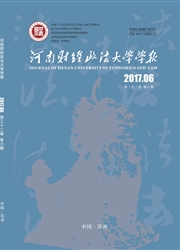

 中文摘要:
中文摘要:
法治并不反对法律解释,而是和法律解释形成互动发展的关系。但法治反对过度解释,要求法律解释必须在一定限度内进行。法律解释的限度并没有统一的标准,不同法治国家中法律解释的限度并不相同。法律自身的状况、法律文化传统、形成法治的历史背景等法治建设的状况,制约着法律解释的限度。我国的法治建设状况决定了我国的法律解释应当从自由解释转向严格解释,从维护权力的解释转向保护权利的解释。在形式上坚持严格解释,在实质上坚持保护权利的解释,是我国法治建设所要求的法律解释的限度。
 英文摘要:
英文摘要:
The rule of law does not oppose interpretation, and there is a mutual progress between rule ol law and legal interpretation. But the rule of law opposes excess interpretation,and it requires that legal interpretation must be controled under some limit. The unitive standard of the limit of legal interpretation does not exist, for the limit of legal interpretation is different in different countries which are ruled by law. The status of rule of law, such as the status of law, the tradition of legal culture, the background of rule of law, restricts the limit of legal interpretation. Our status of rule of law decides that we should switch unrestricted interpretation to rig- id interpretation and switch power-maintenance interpretation to right-protection interpretation. Rigid interpretation in formal and right-protection in essential are the limits of legal interpretation that our rule of law required.
 同期刊论文项目
同期刊论文项目
 同项目期刊论文
同项目期刊论文
 期刊信息
期刊信息
